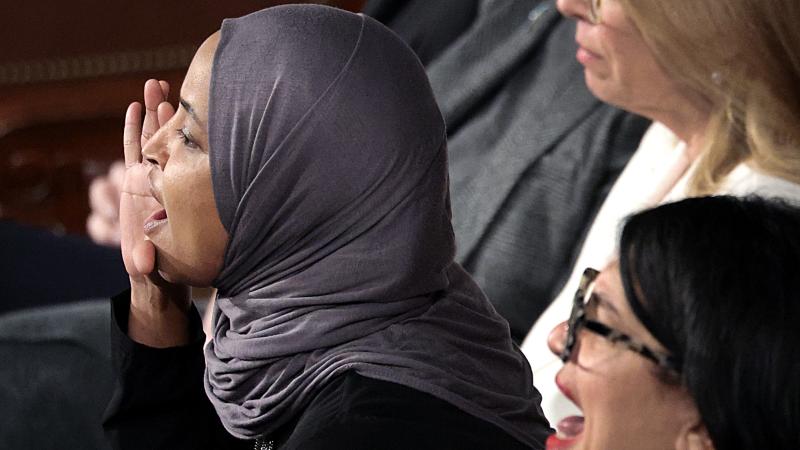Trump Title IX updates attempt to restore due process to campus sexual misconduct investigations
Critics fear new rules will discourage victims from coming forward.
The Trump administration's new Title IX policies assuring the rights of the accused in investigations of sexual misconduct took effect this past fall when colleges began the new school year. "Full Measure with Sharyl Attkisson" investigated the impact these policies have had on colleges.
Tyler Coward, legislative counsel for the Foundation for Individual Rights in Education, explained what the Title IX rules with regard to sexual misconduct investigation on college campuses did before the changes by the Trump administration.
"The rules put in place oftentimes neglected appropriate due process measures to ensure the fundamental fairness of these disciplinary proceedings," Coward said. "One of the most prominent systems for investigating allegations of sexual harassment and sexual assault was the so-called 'single investigator model.' They served as judge, jury, and essentially executioner in some instances, where, in our legal system, we don't task anybody with all those roles."
Title IX, which was first passed in 1972, "requires federally-funded colleges and universities to investigate sexual misconduct," Attkisson reported. "A survey of 33 large universities published last year found one in four women said they were sexually assaulted as students. Fewer than one in three said they filed a report or sought help from their schools."
Under the Obama administration, broad guidance was issued on lowering standards of guilt in college campus sexual misconduct cases. The consequences of this included young men suing on the basis that their rights were violated.
One of these cases occurred in 2014, after Rolling Stone published its notorious story about a mishandled investigation of an alleged fraternity gang rape at the University of Virginia. The story fell apart under scrutiny, and both the fraternity and a college administrator were awarded millions of dollars after the publication and writer were found guilty of defamation.
Sara Collina, who is a gender justice activist and adjunct professor at Georgetown University, disagrees with the updated Title IX policies from the Trump administration, including "a rule change that gives both parties — including the accused — the right to have a representative, question the other side, and examine the evidence," Attkisson reported.
"Cross-examination is one of the issues that is required and is not negotiable," Collina said. "President Trump made it clear that he wanted to pass regulations that would make it harder for people to succeed in a Title IX complaint. And he's done that. That's exactly what all it does. It discourages people from coming forward. It makes it a little bit harder. It doesn't, in any way, help the process be more fair to anybody."
Trump administration Education Secretary Betsy DeVos, who ordered the updates on Title IX last May, said "it's just a false narrative" that the changes make it more difficult for victims to have their cases heard.
Obama administration policies had "resulted in an unjust approach that was, in many cases, and I think accurately, so-called kangaroo courts," DeVos said. "We had dozens and dozens of court cases that found the school did not respect due process rights, the presumption of innocence, many cases that were overturned. And it was a massive overreach to advance a very left-wing agenda."
DeVos explained the changes she implemented:
"We're very clear about the importance of respecting due process rights, the right to understand what the allegations are, the right to submit evidence, the right to read the evidence from the other party, the right to cross-examine — though not in person, not face to face — and the whole package of due process protections that are important. And then also the presumption of innocence, starting from a point where we don't immediately anticipate that the alleged perpetrator is guilty."
Collina challenged DeVos's policy changes. "If Secretary DeVos was really concerned about this issue, she would look at the problems that we have and see that false accusations, made up accusations ... if you go to campus, that's not the problem we have," Collina said.
"I'm not fighting to return to what we had," she added. "I mean, the truth is that what we had wasn't really working either. So we're asking students, and students are asking each other, 'What would it look like if we did it right?'"
DeVos defended the policies. "This is a very fair and just process," she maintained. "And a suggestion that we should do something differently, I'd like to hear what they think should be done differently. Should we throw out due process? Should we presume that every individual that's alleged to be a perpetrator is guilty? I mean, what is their solution? There is none, because I mean, these are bedrock principles on which our country was founded."
As a result of the changes to Title IX, schools nationwide are still updating their policies.
















